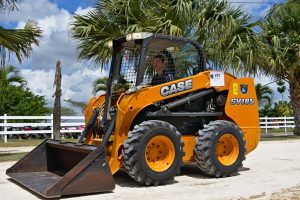Construction equipment companies have an ongoing requirement for debt collection from businesses (and sometimes individuals) that do not pay the agreed-upon rental dues on time. Heavy construction equipment dealers, like Bobcat, Kubota Center, and John Deere, forward accounts to a collection agency after their reminders and requests to pay have failed.
An experienced collection agency with extensive commercial collections experience is a perfect choice. It is an added advantage if they have experience in consumer collections and a nationwide debt collection license.
Need a cost-effective Collection Agency? Contact UsServing Equipment Rental Companies Nationwide |
Collection fees charged by collection agencies are relatively low compared to consumer collections. Collection rates are also high, in the vicinity of 80%.
If you want to know the commercial debt collection process, click here. A collection agency will attempt to recover the debt so your business relationship with your customers is not damaged.
Here are some common billing issues that may arise in construction equipment rental and suggestions for addressing them:
- Incorrect Billing: Sometimes, an invoice may contain errors such as incorrect rental rates, wrong equipment details, or billing for a longer period than the equipment was actually rented. To resolve this, it’s important to keep meticulous records and review invoices carefully before sending them to customers or paying them if you are the renter.
- Late Fees and Penalties: A renter might be unaware of late fees and penalties associated with the late return of equipment. Make sure that the terms and conditions regarding late returns and associated fees are clearly stated in the rental agreement.
- Damage Charges: Disputes may arise over charges for damages to the equipment. To avoid this, conduct a thorough inspection of the equipment both at the time of rental and return, and document any pre-existing damage.
- Unauthorized Charges: Sometimes additional charges that were not agreed upon might be added to the bill. It is important to have a detailed contract that outlines all charges and conditions to avoid unauthorized billing.
- Billing Cycle Confusion: There may be confusion regarding the billing cycle, especially in long-term rentals. It’s important to clearly specify whether the billing is weekly, monthly, or based on another time frame, and make sure both parties are aware of the billing cycle.
- Lost Invoices or Delayed Billing: Invoices may be lost in the mail or sent out late, which can create disputes over timeliness and late fees. Utilizing electronic invoicing and maintaining copies of all sent invoices can help mitigate this issue.
- Payment Terms Disputes: There may be misunderstandings regarding payment terms such as due dates, grace periods, and acceptable payment methods. Clearly define and communicate payment terms in the rental agreement.
- Fuel Charges: If the equipment uses fuel, there might be disputes regarding fuel charges, especially if the equipment is returned with less fuel than at the time of rental. Be transparent and clear about fuel policies.
To minimize billing issues in construction equipment rental:
- Have a detailed and clear rental agreement.
- Maintain accurate and detailed records.
- Communicate openly and clearly with customers.
- Use electronic invoicing and billing systems to track payments and send reminders.
- Regularly review your billing process to identify and correct recurring issues.
In case of disputes, it is also advisable to have a dispute resolution process in place, and if necessary, seek legal counsel.
